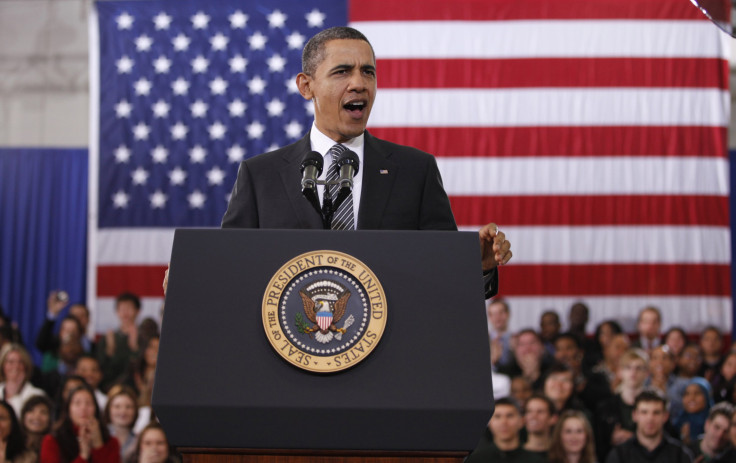Editor Of Des Moines Register Strong-Arms President Obama

When President Barack Obama had a 30-minute conference call on Tuesday with two top executives from the Des Moines Register, the newspaper was told beforehand that it would be an off-the-record exchange. That meant that everything discussed -- policies, the president’s case for re-election and why he deserved the newspaper’s endorsement -- would have to be kept private.
But this being modern journalism, the conversation didn’t end there.
Rick Green, the Register’s editor, who led the interview, fired off a blog post late Tuesday expressing his frustration at being muzzled by the White House. Voters deserved to read a transcript of the interview, he wrote, particularly as the election is a mere two weeks away and many Iowans -- and many Americans, for that matter -- are still unsure about which candidate will best deal with the country’s economic woes.
Green, along with the Register’s publisher, Laura Hollingsworth, lobbied the Obama campaign to reconsider – arguing it would benefit not only voters but his campaign. In his blog post, Green recounted his struggle to put the conversation on the record, posting an email he had sent to a White House spokesperson:
“What the president shared with us this morning -- and the manner, depth and quality of his presentation -- would have been well-received by not only his base, but also undecideds,” Green wrote. “From a voter standpoint, keeping it off-the-record was a disservice.”
While the paper said the interview would not influence which candidate the paper would choose to endorse on Saturday, Green wrote that it was “unfortunate” that an important question -- “Why should you be our president?” -- could not be shared with voters.
The blog post prompted a slew of user comments and angry tweets from voters dismayed by the president’s secrecy toward a publication that had endorsed him in 2008. Some Twitter users cried “censorship.” Politico’s Dylan Byers added to the pressure, urging Obama to go on the record in an article posted late Tuesday.
Within hours of Green’s original post, the Register received word that the White House had changed its mind. No explanation was offered, only a full transcript of the interview, which the White House had digitally recorded. The Register posted the transcript on its website on Wednesday morning, and before long, Twitter was awash with cheers of the power of social media to influence elected officials.
“Nice job, Rick Green,” tweeted Brandon Rittman, an NBC political reporter based in Denver.
The White House downplayed the public flap, according to Politico, which quoted an Obama campaign spokeswoman who spoke to reporters on Air Force One: “This was a call that was meant to be a personal check-in with a publisher and an editor, one of whom he hadn’t spoken with in four years, one of whom he’d never spoken with before.”
The frustration expressed in Green’s blog post reflects a media culture in which political journalists have become less tolerant of the preconditions laid out by the politicians they interview. Off-the-record conversations serve as a means of building trust between news outlets and sources, but some say the practice is no longer tenable in an age when information can be shared around the world in an instant. The never-ending cycle of sound bites, commentary and political spin has fostered a game of media-savvy Whac-A-Mole, with elected officials in a constant state of trying to quash potential gaffes before they happen.
But some publications are fighting back against the protracted defensiveness. Last month, The New York Times announced a new policy in which it will forbid quote approval. The decision, according to the Times’ public editor, Margaret Sullivan, marked “a clear line against the practice of news sources being allowed to approve quotations in stories after the fact.”
Green, in his decision to air his grievances publicly, has furthered the cause, challenging a longstanding journalistic wall between what is said and what is shared.
Read the entire interview between Obama and the Des Moines Register here.
RELATED: Why Are Swing State Newspapers Endorsing Obama, And Does It Matter?
© Copyright IBTimes 2024. All rights reserved.












